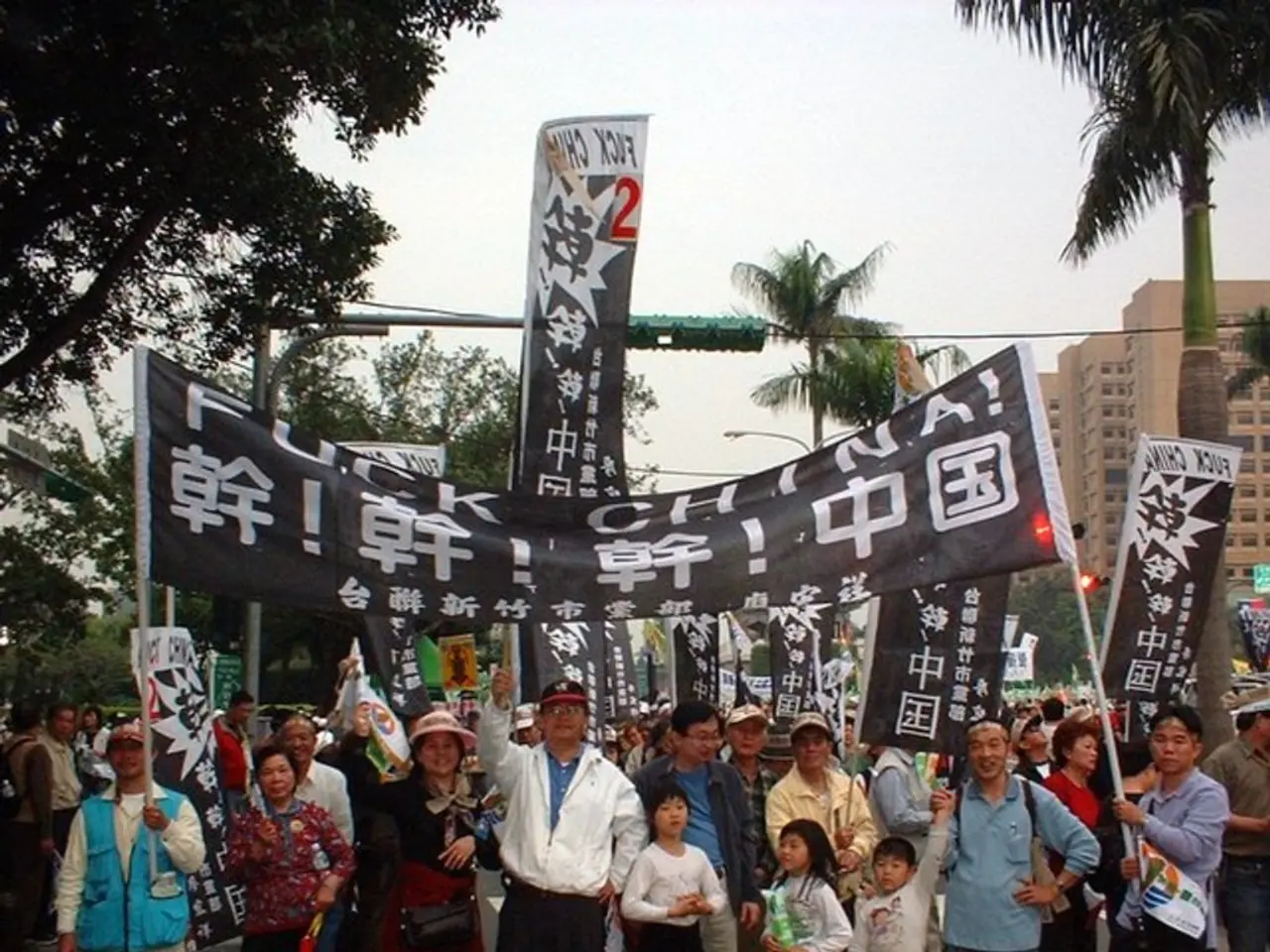Controversy emerges among Labour Party members as they strive to take a stronger stance on asylum matters, potentially bolstering their position against the Reform Party's standpoints.
In the heart of the United Kingdom, the issue of small boats and immigration has become a significant electoral concern for Labour MPs, as it remains the number one issue on the doorstep for many voters.
Despite the Conservative government's efforts, immigration numbers have remained unchanged since David Cameron's time. The UK asylum process, marked by a substantial but declining backlog, is under strain. As of March 2025, around 109,500 people were awaiting an initial decision, a decrease from a peak of about 175,500 in mid-2023. This backlog has led to long waits, limited rights, and low support payments for asylum seekers, contributing to poverty and hindering integration. The appeals backlog has also grown sharply, exceeding 50,000 cases by mid-2025.
The government has introduced new measures to address the issue, including £100m, 300 extra officers at the National Crime Agency, new tech for intelligence-gathering, a "one in, one out" agreement with France, and tougher penalties for those advertising illegal crossings on social media. However, only about 3% of small boat arrivals from 2018-2024 were returned previously, and it remains uncertain how impactful these new measures will be given continued high arrivals.
The frustration over asylum seekers and immigration in various communities, such as Hastings, England, has evolved into fury. Protests outside hotels housing asylum seekers have led to arrests, flares being set off, and reports of slogans like "send them home" being chanted. Nigel Farage, leader of Reform UK, has proposed leaving the European Convention on Human Rights and deporting anyone arriving on small boats as a solution.
Keir Starmer's Labour party is trying to address the issue, but some Labour MPs passionately disagree with their party's stance on asylum seekers and immigration. Many voters believe that only Reform and Farage can fix the broken asylum system. On the other hand, anti-racism protesters have also arrived in some towns to counter these sentiments.
The home secretary Yvette Cooper has announced additional funds and measures to tackle the issue of asylum seekers and boat crossings. The Labour party is also pledging migration and asylum reform, but concerns remain about whether they might lose seats to Reform UK if they adopt similar policies.
Communities are affected by the delays and restrictions, with asylum seekers often enduring destitution and limited housing options, affecting social cohesion and service demands. The large backlog and limited safe routes create pressure on local services and political discourse, making migration policy a key electoral issue.
As the UK asylum process continues to struggle, it is clear that a balanced approach is needed to address border control, humanitarian obligations, and managing community impacts. The debate is far from over, and the impacts on communities and politics remain significant and unresolved.
The asylum process and small boat immigration in the UK have become a significant point of contention in the realm of politics, often shaping general news. The ongoing strain on the UK asylum process, marked by a growing backlog and poor living conditions for asylum seekers, has divided opinion among Labour MPs, with some expressing dissatisfaction with their party's stance on the issue. As such, migration policy continues to be a key electoral concern, particularly amidst calls from parties like Reform UK for drastic measures to address the problem.




